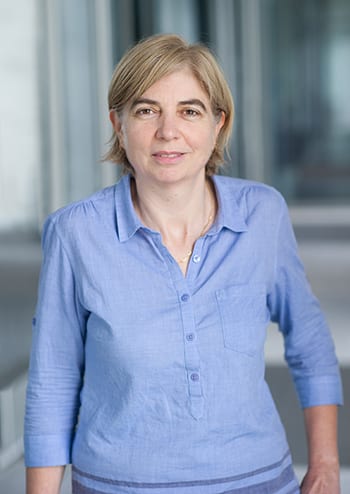Adair Morse, an associate professor of finance at the Haas School of Business, has been named to the Biden Administration’s treasury department as deputy assistant secretary of capital access in the Office of Domestic Finance.
The U.S. Department of the Treasury, led by Prof. Emeritus Janet Yellen, announced the appointment today.

“I’m thrilled to have the opportunity to serve in the Biden Administration and to join the team at treasury, serving the people of this great country,” said Morse, the Soloman P. Lee Chair in Business Ethics, who is taking a leave from the Haas Finance Group to commit to her new role.
“We will miss Adair at Haas, where she has conducted groundbreaking finance research and launched the Sustainable and Impact Finance (SAIF) initiative with (former Haas Dean) Laura Tyson to train many new leaders in the field,” said Dean Ann Harrison. “She has already made an impact in helping small businesses in California through her work on the California Rebuilding Fund. I have no doubt she will have an even greater impact on a national scale.”
The Office of Domestic Finance develops policies and guidance in the areas of financial institutions, regulation, capital markets, and federal debt finance. Its community and economic development division coordinates small business finance and development, housing policy, capital access, and issues related to underserved communities.
Morse, who holds a PhD in finance from the University of Michigan’s Ross School and two master’s degrees from Purdue University, joined Haas in 2012 from the University of Chicago’s Booth School of Business. Her research interests include equity issues in financial services and algorithms, small business survival, sustainable investing, discrimination and corruption, venture capital, and pension management. The unifying theme in her work, she has said, is “leveling economic playing fields.”
“Adair’s groundbreaking research has looked at important issues, like small business survival in the city of Oakland, consumer lending discrimation in fintech, and the pervasiveness of corporate fraud,” said Prof. Catherine Wolfram, associate dean for Academic Affairs and chair of the faculty. “As a pioneering, creative thinker in so many areas, she will have plenty of opportunity to bring her financial and social impact leadership to the table.”
As a pioneering, creative thinker in so many areas, she will have plenty of opportunity to bring her financial and social impact leadership to the table. —Prof. Catherine Wolfram, chair of the faculty
Morse has spent much of the pandemic using her finance expertise to try to help small businesses. Last spring, Morse and Tyson began working on a strategy to use public capital to attract private lenders to provide low-interest credit to help vulnerable small businesses get through the crisis. They first helped develop a program with the City of Berkeley, and then worked with others—including Yellen, who was then on Gov. Newsom’s Task Force on Jobs and Competitiveness—to implement an innovative public-private loan structure at the state level. Their work helped launch the California Rebuilding Fund, run by the Governors’ Office of Business and Economic Development (GO-Biz) and aimed at some of the state’s smallest businesses in under-resourced communities.
At Berkeley Haas, Morse also ran the Haas Impact Fund and Sustainable Investment Fund curriculum, managing two endowment funds with Haas students. The Sustainable Investment Fund is the first and largest student-led Socially Responsible Investing (SRI) fund within a leading business school.Until recently, Morse served on the Governance and Allocations Committee of the California Rebuilding Fund, as well as on the expert panel for the Norwegian sovereign wealth fund, advising on issues of sustainability and innovation.